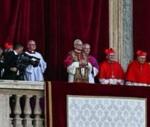You are here
Egypt and Ukraine — similarities and differences
Feb 26,2014 - Last updated at Feb 26,2014
One must not be misled by the similarities between developments in Ukraine and the January-February 2011 and June 2013 events in Egypt.
It is true that the hub of the uprisings was Maidan (Independence) Square and Midan Al Tahrir (Liberation Square) in both countries and that tens of thousands of people took part in protracted protests against authoritarian and corrupt rulers. Both countries have also been suffering from economic ruin.
The well-publicised exercise of people’s power in Egypt may have, to a certain extent, inspired Ukrainians to pour into Maidan and stay there for three months, braving snow, rain and freezing wind, as well as tear gas, stun grenades and live fire last week.
However, Ukrainians may have been more motivated by their own recent history: the “Orange Revolution” they mounted between November 2004 and January 2005, which was characterised by civil disobedience, sit-ins and strikes.
Then, as now, the protests were against one man, Victor Yanukovich.
In 2004, he was accused of rigging the presidential election to defeat Victor Yushenko. The countrywide protests brought about the annulment of the result of the poll and a revote, deemed “free and fair”, which gave Yushenko the presidency.
Yanukovich won on his second try in 2010, but was deposed before he finished his term. Therefore, Ukraine’s uprisings have twice driven the same man from office.
By contrast, Egypt’s people’s power movement ousted two different presidents, 30-year ruler Hosni Mubarak and one-year chief executive Mohamed Morsi.
There are further differences.
Yanukovich lost the presidency by fleeing the capital, Kiev, and disappearing, prompting parliament to impeach him and the judicial authorities to issue a warrant for his arrest on charges of ordering the riot police to fire on protesters, killing at least 77.
Mubarak and Morsi both clung to the presidency and were removed by the army at the instigation of millions of Egyptians who took to the streets and squares across the country.
In Ukraine, as in Egypt, the army eventually took the side of the “uprisers”. But in Egypt, the Supreme Council of the Armed Forces (SCAF) assumed presidential and parliamentary powers upon the removal of Mubarak, while in Ukraine, parliament has taken charge, named its acting president, and is set to form a government by today.
The Ukrainian parliament was able to step in because it has a certain amount of legitimacy, although young activists are tired of the same faces in power and demand new leaders with new ideas.
The Egyptian parliament was unable to act as it was “elected” in the most corrupt poll ever held in that country and had neither legitimacy nor credibility.
The SCAF suspended and then amended the constitution, while the Ukrainian parliament reverted to the 2004 constitution, which limited presidential powers and prerogatives.
Ukraine is the largest country in Europe, while Egypt is the most populous country in the Arab world and Africa, with a population of 84 million, nearly double that of Ukraine. Both peoples suffer from poverty, lack of public services, pollution, environmental degradation, mismanagement and massive corruption.
Ethnic Egyptians constitute 91 per cent of the population, creating a generally homogenous ethnic entity from which no one seeks to secede.
But ethnic Ukrainians are 77.8 per cent, with ethnic Russians being the second largest community, at 17.3 per cent. To complicate matters, 67.5 per cent of Ukrainians speak Ukrainian as their first language and 29.6 per cent speak Russian as their native tongue.
The latter group contains both ethnic Russians and ethnic Ukrainians who are largely concentrated in the east and south of the country, near Russia. Many in these regions still consider Yanukovich to be president.
He is half Russian and one-quarter each Belarusian and Polish.
The most pro-Russian area is the autonomous republic of Crimea, where nearly 60 per cent of the population is of Russian extraction. There is talk of separation among hot heads who could build momentum for secession.
Russia could exploit this to punish the European Union for trying to entice Ukraine to move into its orbit rather than join the Eurasian Economic Community Moscow formed with Belarus and Kazakhstan.
Ukraine’s economy is experiencing a deepening recession, with industrial production, consumer spending and exports falling.
Moscow has offered Ukraine a $15 billion bailout — and paid $3 billion — to stave off defaulting on its debts, as well as a one-third cut in the cost of natural gas imported from Russia.
Payments were suspended after the fall of Yanukovich. However, the promised sum cannot cover the estimated $35-$50 billion the country requires, and Kiev did not stick to the terms of earlier International Monetary Fund loans, which depended on charging customers more than 20 per cent for gas imported from Russia.
The Maidan revolution may have very different consequences for Ukraine, its neighbours and competing powers than Egypt’s uprisings had for itself.
The neo-Cold War between Russia and the US/Europe initiated by the Syrian conflict could deepen if Europe and the US attempt to draw Ukraine into the Western orbit at the expense of Russia, which, according to Guardian commentator Timothy Garton Ash, regards Ukraine more of an integral part of itself than Britain does Scotland.
It is also likely that Russia — which was ostracised and isolated after the World War I era red revolution and after World War II — could react to the crisis in Ukraine by toughening its line on Syria, boosting military and financial aid, and encouraging Damascus to adopt an uncompromising stance in negotiations with the expatriate opposition National Council, if and when talks resume.













